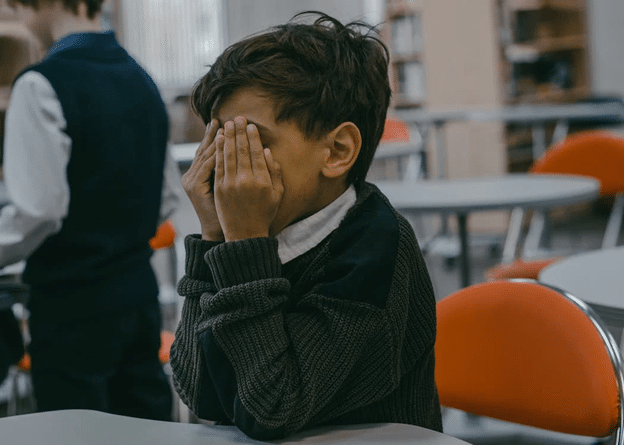Childhood trauma, encompassing experiences such as abuse, neglect, household dysfunction, and exposure to violence, can have profound and lasting effects on an individual’s physical, emotional, and psychological well-being. There is a significant correlation between childhood trauma and the development of substance use disorders (SUDs) later in life.
Understanding Childhood Trauma
Childhood trauma refers to adverse experiences that occur during a child’s formative years and disrupt their sense of safety, security, and trust in caregivers. Examples of childhood trauma include physical, sexual, and emotional abuse, neglect, domestic violence, parental substance abuse, and family instability. These traumatic experiences can have profound effects on a child’s development, leading to emotional dysregulation, impaired attachment, low self-esteem, and maladaptive coping strategies.
The Pathway to Substance Use Disorders
For many individuals, the experience of childhood trauma sets the stage for the development of substance use disorders later in life. Trauma survivors may turn to substance use as a coping mechanism to numb painful emotions, alleviate distressing memories, and escape from overwhelming feelings of fear, shame, and helplessness. Substance use provides temporary relief from the psychological and emotional pain associated with trauma, creating a cycle of dependency and addiction as individuals seek to self-medicate their symptoms.
The connection between childhood trauma and substance use disorders is further elucidated by neurobiological and psychological mechanisms. Chronic stress and trauma during childhood can dysregulate the brain’s stress response systems, including the hypothalamic-pituitary-adrenal (HPA) axis and the limbic system, leading to alterations in neurotransmitter function, hormonal imbalances, and heightened reactivity to stressors. These neurobiological changes increase susceptibility to addictive behaviors and cravings, as well as impaired impulse control, decision-making, and emotion regulation.
Trauma Triggers and Relapse
Trauma triggers, such as reminders of past traumatic events, can elicit strong emotional and physiological reactions in individuals with a history of childhood trauma, increasing the risk of substance use and relapse. Trauma-related cues may evoke intense feelings of anxiety, flashbacks, and dissociation, prompting individuals to turn to drugs or alcohol as a means of coping with distressing memories and sensations. Without effective coping strategies and support systems in place, trauma survivors may resort to maladaptive coping mechanisms, perpetuating the cycle of addiction.
Prevention and Intervention Strategies
To address the link between childhood trauma and substance use disorders, a comprehensive approach is needed that focuses on prevention, early intervention, and trauma-informed care. Prevention efforts should prioritize creating safe, nurturing environments for children, promoting positive parenting practices, and providing support services for families at risk of trauma. Early intervention programs that identify and address trauma-related symptoms and behaviors in children can mitigate the long-term impact of trauma and reduce the likelihood of substance use.
In terms of treatment, trauma-informed approaches such as trauma-focused cognitive behavioral therapy (TF-CBT), eye movement desensitization and reprocessing (EMDR), and dialectical behavior therapy (DBT) are effective in addressing both trauma and substance use disorders concurrently. These therapies help individuals process traumatic memories, develop coping skills, regulate emotions, and build resilience in recovery. Additionally, integrated treatment models that combine trauma-informed therapy with substance abuse treatment offer holistic care that addresses the interconnected needs of trauma survivors with substance use disorders.
Through education, awareness, and advocacy, Northbound Addiction Treatment Center can create a more supportive and compassionate society that prioritizes the well-being of all individuals affected by childhood trauma and substance use disorders. Contact us today!
Author
-

President, CEO & Founder at Northbound Treatment Network
Paul Alexander is the CEO, President & Founder of Northbound Treatment Network in Newport Beach, California. He believes wholeheartedly in transformational leadership, organizational health and effective, fully integrated substance use disorder and mental health treatment. With over 27 years of experience in behavioral healthcare, Paul has extensive knowledge of “in vivo” treatment modalities, clinical development, operations, strategy, marketing and financial planning. He has been widely recognized for his development of collegiate-based residential treatment programs for students in recovery and authored a research study at The University of California confirming this modality’s effectiveness.
Paul’s comprehensive professional experience, willingness to innovate, and emphasis on organizational health are vital factors in Northbound’s continued success. Paul received his Certified Addiction Treatment Specialist training at Saddleback College in Mission Viejo, CA, and was awarded Outstanding Alumni Service Award in 2002. Paul holds a Bachelor of Arts degree in Criminology, Law and Society, Summa Cum Laude, from University of California, Irvine, and a Juris Doctorate degree from Loyola Law School of Los Angeles. Paul currently serves on The National Association of Addiction Treatment Providers (NAATP) board. In addition, he serves on The Family Recovery Foundation board and The CarePossible board in Orange County; both organizations are committed to raising funds for family recovery and treatment for former military personnel. Paul is in recovery himself and lives in Orange County with his wife Silvana and his two young sons, Noah and Dean.










